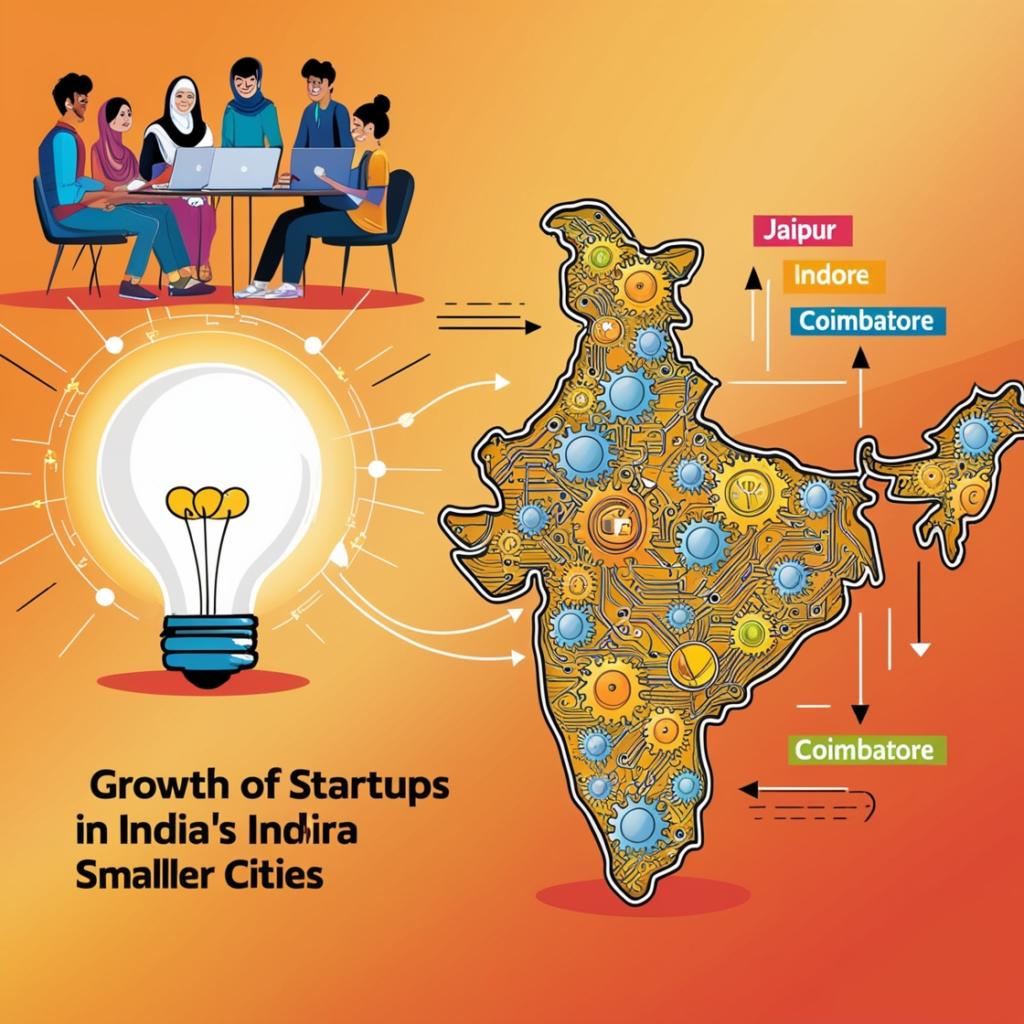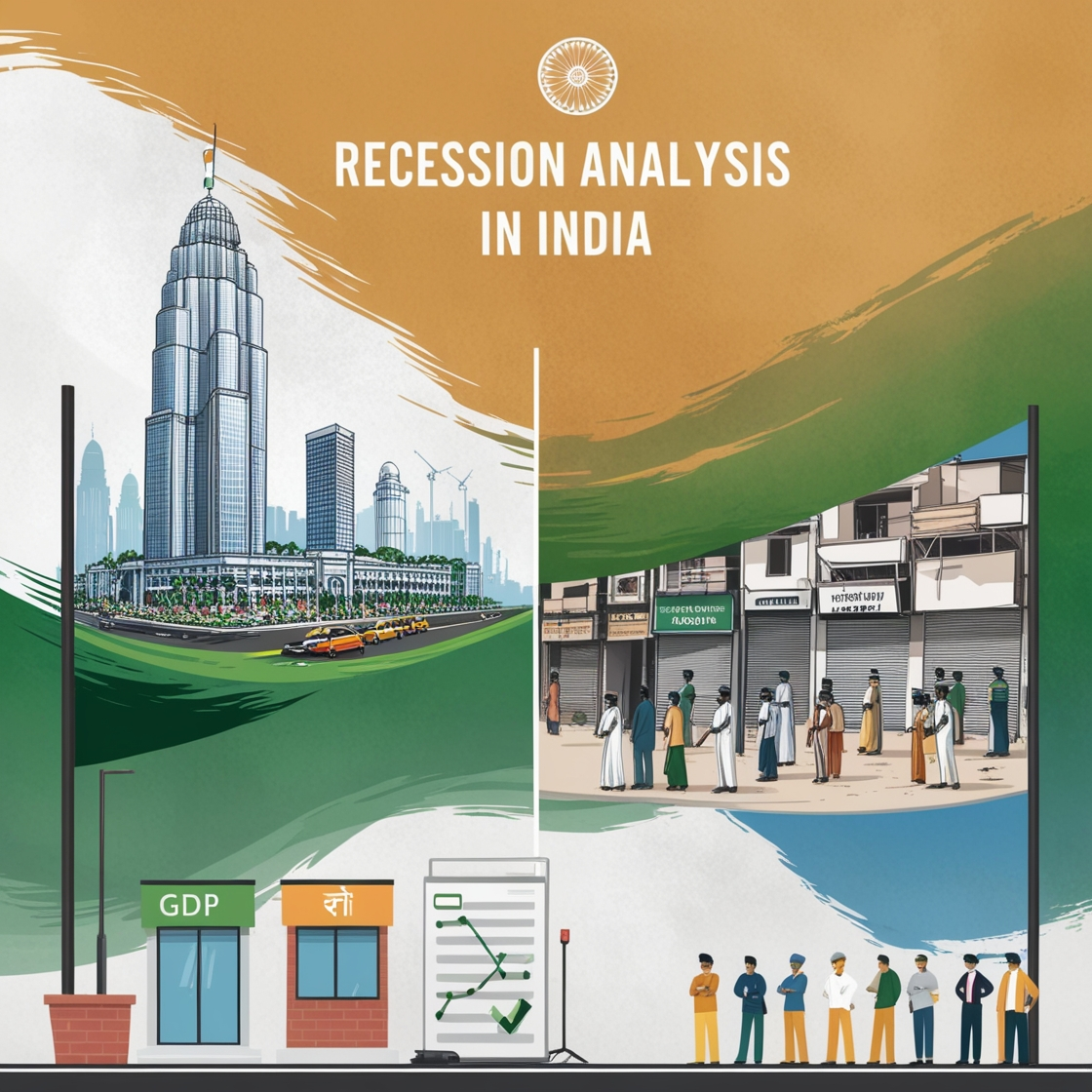Discover how India’s smaller cities are emerging as new start-up hubs driven by digital connectivity, government initiatives, and cost advantages. Explore success stories and challenges faced by entrepreneurs in Tier 2 and Tier 3 cities, as detailed in the Economic Survey 2024.

Economic Survey 2024
The Economic Survey 2024 presents a new trend radically altering India’s entrepreneurial environment. Historically, Bengaluru, Mumbai, and Delhi have been the pioneers of start-ups. However, there is now a gradual shift towards Tier 2 and Tier 3 cities. Over 45% of start-ups are now originating from these smaller cities, changing the geography of India’s start-up landscape. This article explores the reasons behind this shift, the emerging companies from these regions, future prospects, and potential challenges.
Key Growth Drivers Identified in the Economic Survey
Several pivotal factors contribute to the start-up boom in India’s smaller cities:

1.Digital Penetration and Connectivity: The proliferation of affordable smart phone devices and faster connections to the internet has allowed and opened up opportunities of acquiring information and resources. Small city business people now have the same opportunities to obtain global information and market as big city business people. This digital inclusion has brought equity in the society such that talents from tier 2 and tier 3 cities can come up with innovations.
2.Government Initiatives: Government programs such as Start Up India, Make in India has provided needed fillip to develop the start-up culture in the country. These initiatives allow others to provide the necessary funding, support new, and more experienced mentors which allows entrepreneurs to create the necessary infrastructure to do their work. Third, the initiation of Digital India has enhanced the internet connection which is very essential to start-ups.
3.Cost Advantages: A discussion of Employee Costs Show that the operational costs are cheap in small cities as compared to the big cities. To this we add cheaper purchase of land, lower costs of labor, and a relatively lower cost of living. These cost advantages enable start-ups to obtain value from negligible budgets, hence expand and maintain their business in the first couple of years.
4.Talent Pool: Attracting and retaining talented people in the regions, including relocations back to hometowns is widely observed. The above change is proving to be beneficial in developing talent in these regions. Smaller cities educational facilities are also aligning their courses to these demands. The graduates are well-positioned to provide support to the start-up environment of the locality.
Economic Survey Success Stories
Numerous start-ups from Tier 2 and Tier 3 cities are making waves with their innovative solutions and rapid growth:
ID Fresh Food from Bengaluru (considered a Tier 2 city) has revolutionized the fresh food segment with its ready-to-cook products. Musthafa PC, a former software engineer established the company, and it rapidly grows since then catering millions of customers in India and internationally. It is clear that they are great examples of how innovation and perseverance can lead to significant business success regardless of the location.
CarDekho from Jaipur (Tier 2) is another notable example. CarDekho was started by Amit Jain and Anurag Jain. Today, it is a leading player in the automotive space with its comprehensive car buying and selling solutions. The company has secured significant funding and continues to expand by adding more companies and merchants. This growth highlights the development opportunities in mid-sized cities.
These success stories are not isolated cases but part of a larger trend where small-town entrepreneurs are making significant contributions to the national economy.
Challenges and Opportunities
While the growth of start-ups in smaller cities is promising, several challenges need to be addressed:
1.Access to Funding
Despite improvements, start-ups in the smaller cities than the metropolitan ones especially as far as funding is concerned. In order to fill this gap, there must be stronger networks of angels and venture capitalists with a increased willingness to search ill outside the major UK cities. Some of the platforms like LetsVenture and AngelList have however begun covering this need by introducing investors to the start-ups originating from the Tier II and III cities.
2.Mentorship and Training
The advisors and practitioners should be available in large quantity because inexperienced people need them in starting a business. It is possible to develop these regions by increasing available mentorship programs and developing local entrepreneur network. Major efforts are underway, such as NASSCOM’s 10,000 Startups and various state government incubation centers. However, we need to expand these initiatives in terms of scale and geographical reach.
3.Infrastructure Development
Transportation and logistics services along with improved internet facilities will continue to enhance business structures in these tiers. However, there are still some challenges. The Smart Cities Mission initiated by the Indian government aims to address some of these issues. By developing infrastructure in selected smart cities, the mission will help support start-ups.
4.Market Access
Established in smaller cities the firms may experience major trade constraints with large markets. Sustaining the growth of these businesses and embracing online stores and proper distribution channels will expand their consumers’ base. Also, advertising in trade fairs and industry relevant exhibitions and event can prove greatly beneficial in terms of visibility.
The Road Ahead
The rise of start-ups in India’s smaller cities is a testament to the country’s evolving economic landscape. These cities will further develop as innovation cities and will prove to be necessary for the development of India’s economy. The government, private enterprises, and schools and colleges must support this growth and continue the growth and development of the start-up ecosystem uniformly across all regions of the country.https://timevision.in/tech/indias-ai-startup-boom-a-new-era-of-innovation/

Future trends in IoT Technology

How Machine Learning Technology Evolved

Focus on Specific Aspects of the Recession :
AI Search Revolution in India: Google’s Impact on User Experience




Leave a Reply
You must be logged in to post a comment.